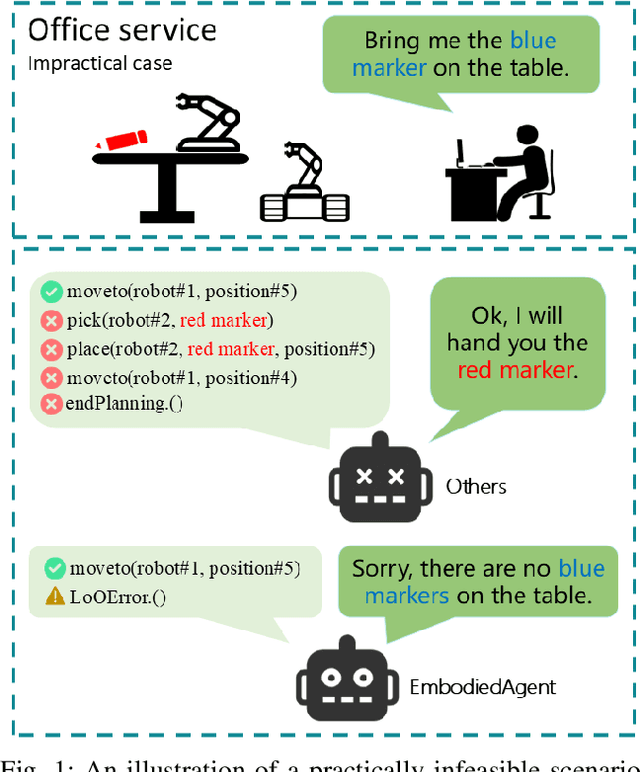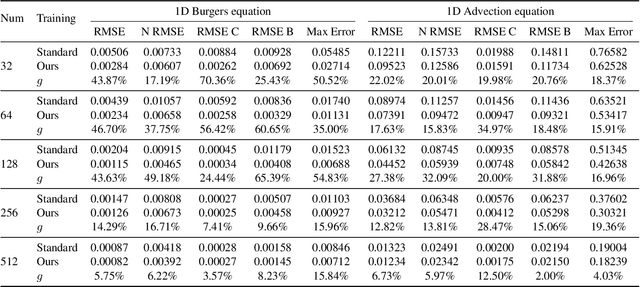Zexin Lin
CoWork-X: Experience-Optimized Co-Evolution for Multi-Agent Collaboration System
Feb 04, 2026Abstract:Large language models are enabling language-conditioned agents in interactive environments, but highly cooperative tasks often impose two simultaneous constraints: sub-second real-time coordination and sustained multi-episode adaptation under a strict online token budget. Existing approaches either rely on frequent in-episode reasoning that induces latency and timing jitter, or deliver post-episode improvements through unstructured text that is difficult to compile into reliable low-cost execution. We propose CoWork-X, an active co-evolution framework that casts peer collaboration as a closed-loop optimization problem across episodes, inspired by fast--slow memory separation. CoWork-X instantiates a Skill-Agent that executes via HTN (hierarchical task network)-based skill retrieval from a structured, interpretable, and compositional skill library, and a post-episode Co-Optimizer that performs patch-style skill consolidation with explicit budget constraints and drift regularization. Experiments in challenging Overcooked-AI-like realtime collaboration benchmarks demonstrate that CoWork-X achieves stable, cumulative performance gains while steadily reducing online latency and token usage.
EmbodiedAgent: A Scalable Hierarchical Approach to Overcome Practical Challenge in Multi-Robot Control
Apr 14, 2025



Abstract:This paper introduces EmbodiedAgent, a hierarchical framework for heterogeneous multi-robot control. EmbodiedAgent addresses critical limitations of hallucination in impractical tasks. Our approach integrates a next-action prediction paradigm with a structured memory system to decompose tasks into executable robot skills while dynamically validating actions against environmental constraints. We present MultiPlan+, a dataset of more than 18,000 annotated planning instances spanning 100 scenarios, including a subset of impractical cases to mitigate hallucination. To evaluate performance, we propose the Robot Planning Assessment Schema (RPAS), combining automated metrics with LLM-aided expert grading. Experiments demonstrate EmbodiedAgent's superiority over state-of-the-art models, achieving 71.85% RPAS score. Real-world validation in an office service task highlights its ability to coordinate heterogeneous robots for long-horizon objectives.
Adversarial Learning for Neural PDE Solvers with Sparse Data
Sep 04, 2024



Abstract:Neural network solvers for partial differential equations (PDEs) have made significant progress, yet they continue to face challenges related to data scarcity and model robustness. Traditional data augmentation methods, which leverage symmetry or invariance, impose strong assumptions on physical systems that often do not hold in dynamic and complex real-world applications. To address this research gap, this study introduces a universal learning strategy for neural network PDEs, named Systematic Model Augmentation for Robust Training (SMART). By focusing on challenging and improving the model's weaknesses, SMART reduces generalization error during training under data-scarce conditions, leading to significant improvements in prediction accuracy across various PDE scenarios. The effectiveness of the proposed method is demonstrated through both theoretical analysis and extensive experimentation. The code will be available.
Exploring the relationship between response time sequence in scale answering process and severity of insomnia: a machine learning approach
Oct 13, 2023



Abstract:Objectives: The study aims to investigate the relationship between insomnia and response time. Additionally, it aims to develop a machine learning model to predict the presence of insomnia in participants using response time data. Methods: A mobile application was designed to administer scale tests and collect response time data from 2729 participants. The relationship between symptom severity and response time was explored, and a machine learning model was developed to predict the presence of insomnia. Results: The result revealed a statistically significant difference (p<.001) in the total response time between participants with or without insomnia symptoms. A correlation was observed between the severity of specific insomnia aspects and response times at the individual questions level. The machine learning model demonstrated a high predictive accuracy of 0.743 in predicting insomnia symptoms based on response time data. Conclusions: These findings highlight the potential utility of response time data to evaluate cognitive and psychological measures, demonstrating the effectiveness of using response time as a diagnostic tool in the assessment of insomnia.
 Add to Chrome
Add to Chrome Add to Firefox
Add to Firefox Add to Edge
Add to Edge